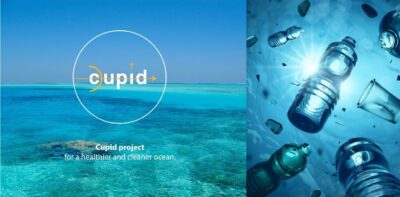CUPID 4 Science project
Get rid of plastic, an act of love towards the ocean
Plastic pollution is a major concern for the marine ecosystem, and its removal is both necessary and
challenging. The CUPID (Clearing Underwater Plastic in Diving) 4 Science project aims to introduce
a ground-breaking model to solve the issue of plastic and microplastic dispersed in the sea. In our
opinion, the support from the general public could be the winning weapon against macro and
microplastics, which is why the project focuses mostly on citizen science (i.e., the contribution of
the individual citizen). The CUPID 4 Science project strives indeed to engage sea lovers, including
divers, freedivers, and sailors, in both recreational and professional activities. These volunteers are
trained to remove and properly dispose of plastic and microplastics during their activities. The
primary goal is to coordinate these efforts effectively, guided by clear and comprehensive
guidelines.
First clean-up activity of CUPID 4 Science projectEmbracing ocean beauty, restoring its purity
From May 13 to 20, 2024, a diving cruise took place in the Maldives aboard the boats “Duke of York”
and “Conte Max,
” operated by Albatros Top Boat. It provided an excellent opportunity to promote
the campaign and assess the feasibility of the protocol (the core of the project), which will be
extended to more geographical areas, starting in Italy, thanks also to partnerships with institutions
and ports. The research has been coordinated by an Italian team that belongs to Apnea Academy
Research, a spin-off of Apnea Academy founded by the multiple champion Mr. Umberto Pelizzari,
that yearly organizes environmental initiatives such as “spazzapnea”, clean seafloor operation, in
several italian localities. During this week, the Italian researchers have identified specific areas and
coordinated the divers to properly remove the underwater plastic and microplastics at various
depths and to collect water and sediment samples. Also, non-divers applied the same method to
different beaches of a few desert islands. These recurring clean-up efforts have to be repeated
weekly in the same targeted zones in order to make them “plastic-free”, as much as possible. A
weekly clean dive to remove plastic that is accumulated and not easy to decompose will raise
awareness of the marine environment and help volunteers take proper decisions and actions.
Guraidhoo: one of the seleced study area Collected samples
The key element of the project is data recorded; the samples collected from both underwater and
coastal areas will be carefully cataloged, weighed, and uploaded to a dedicated open access portal.
This will enable monitoring of the project's results, validation of the approach, and sharing of data
with the scientific community, local governments, institutions for awareness campaigns, and
educational projects.Embracing ocean beauty, restoring its purity
CUPID 4 Science also aims to determine if this method can have a real impact on the microplastics
circulating in the sea. Therefore, multiple water and sediment samples will be collected at various
depths in the same areas. CUPID 4 Science focuses on creating and using filters able to capture
microplastics at their source, reducing their emissions. In the future, these filters will be applied in
confined areas such as ports or bays. On the last day of “Duke of York,” some Maldivian institutions
and associations were invited to assist in the presentation of the project: the Deputy Minister of
Environment, the Environmental Protection Agency, researchers from MNU, Save the Beach, No
Plastic Maldives, IMTM, Nsure Lab, and Secret Paradise. All participants were enthusiastic and
showed their interest in being part of the project. They highlighted the importance of involving the
councils of the islands in clean-up events and the local communities, starting with the young
generation, who could be more motivated to protect the environment. In the coming months, we
will release the final guidelines and standard procedures, complete the web portal, and initiate
dissemination efforts, with the aim of encouraging more resorts, boats, and diving centers to join
our project. “United to rid the ocean of plastic” is CUPID 4 Science’s motto. The same project will
soon be applied to one of our esteemed supporters, “The Barefoot Eco Hotel,
” an eco resort located
on the local island of Hanimaadhoo. Their view is to implement their existing sustainable initiatives,
practiced since their opening in 2014, thanks also to the presence of marine biologists and the
involvement of guests, staff, and the local community. Their involvement in this scientific project is
driven by a shared commitment to gathering data, which certainly contributes to global marine
conservation efforts.
Stay tuned.
Organizing committee
info cialonid@gmail.com Cell: 3385852323





